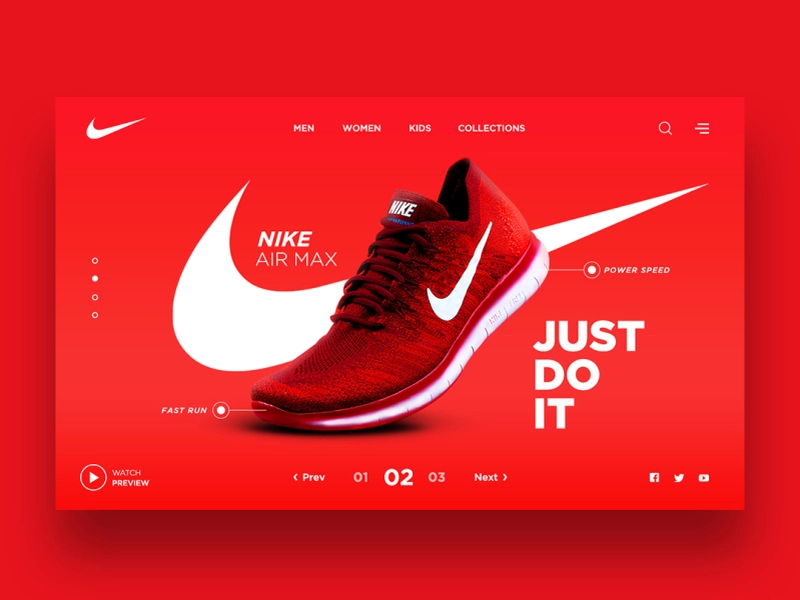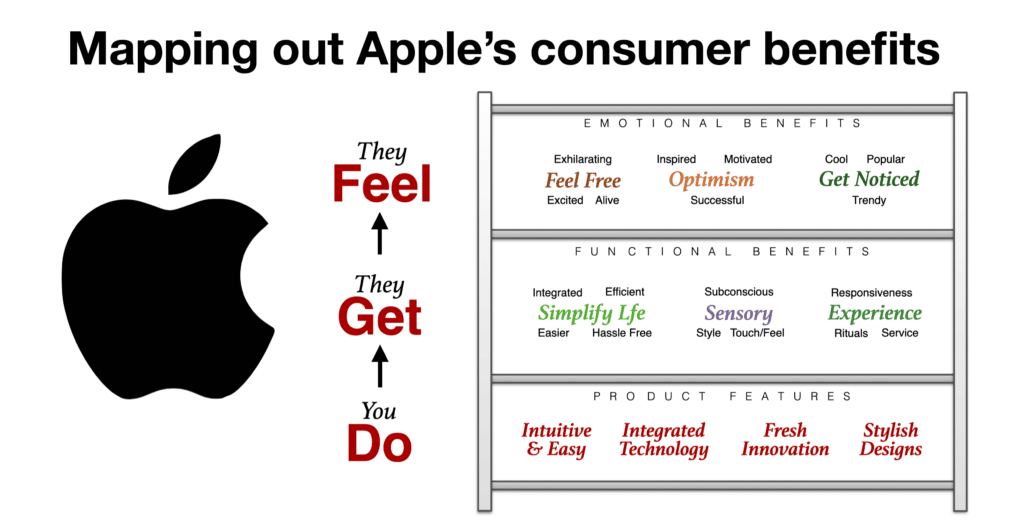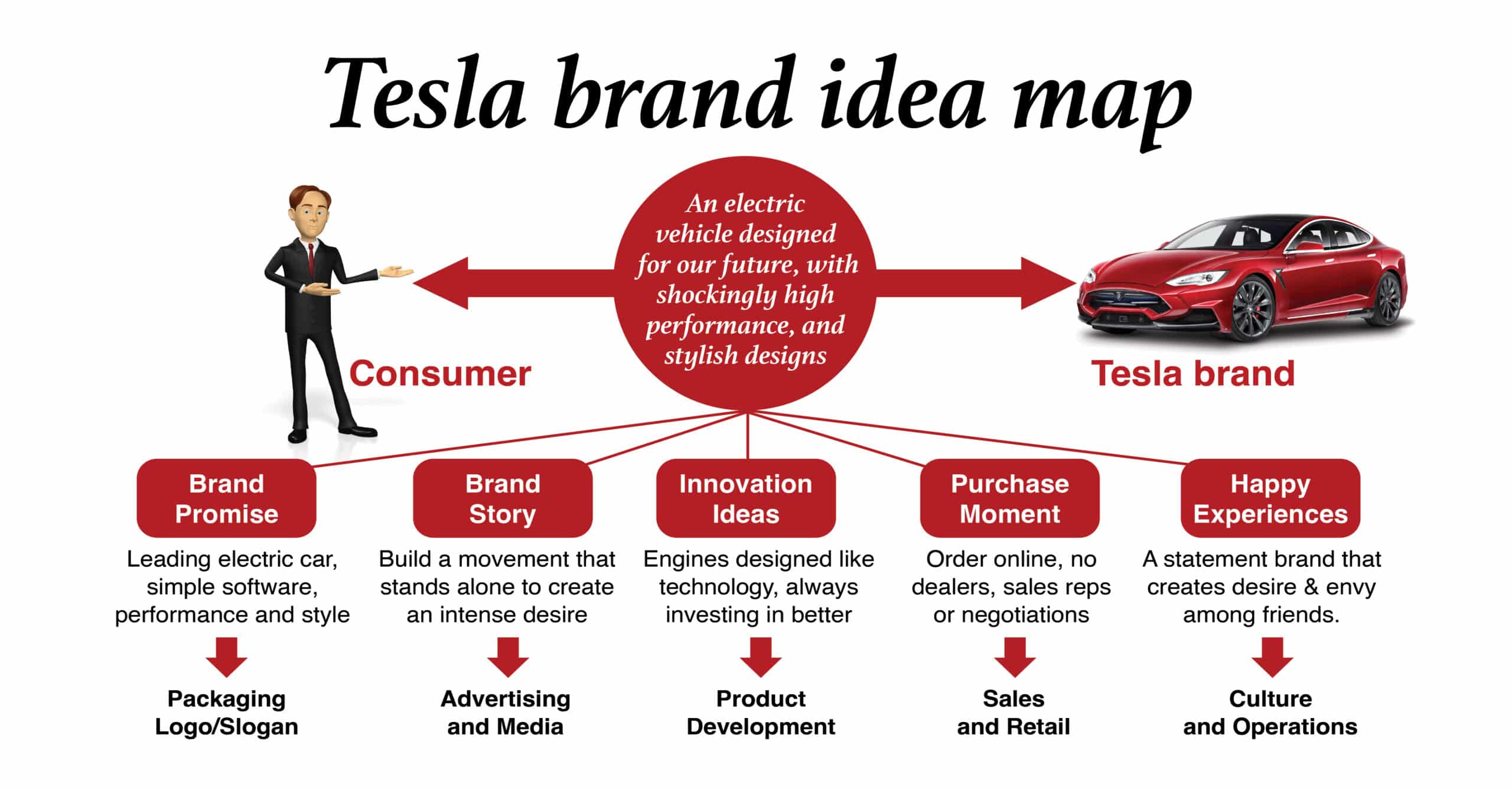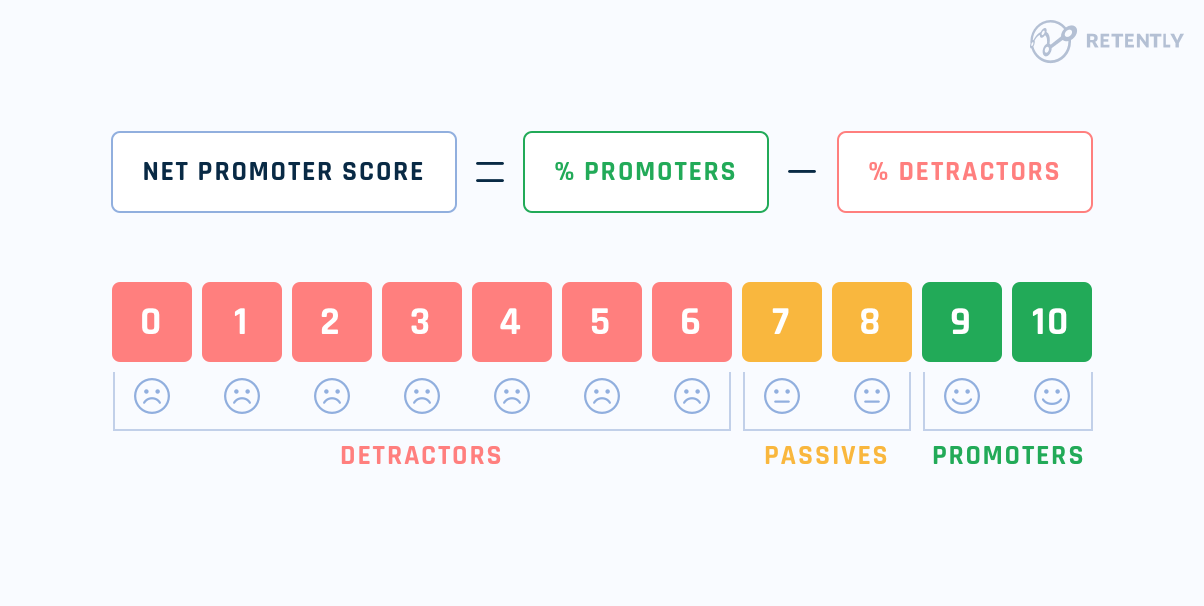Brands are so much more than just a logo or a name. To be successful, you must have a brand strategy.
Why do you think the terms “Kleenex” and “tissue” are practically synonymous? It’s because of a strong brand identity and recognition.
The concept of branding goes beyond products and services — it encompasses the art of storytelling and creating meaningful experiences for customers.
In this post, we will explore why a well-thought-out and calculated brand strategy is crucial for businesses and how it can elevate your company to new heights.
Why Brands Matter: Creating Lasting Memories
What are brands? They’re not just symbols or products; they represent stories that deeply connect with us (some literally, like Disney!):

Think back to when you were younger and you started associating a brand like Coca-Cola with positive contexts like summer parties and family get-togethers. Maybe there was a beloved toy that brought you boundless joy; something that triggered happiness in you when you saw the packaging label.
Brands have the remarkable ability to transcend being mere products and become a part of our personal narratives. They weave themselves into our stories, becoming threads that tie together cherished moments and emotions. They create an intangible bond that goes beyond functionality or aesthetics. It’s as if they become a character in our own life stories, shaping our perspectives and influencing our choices.
These brand experiences hold immense power. They touch us on a deeper level, evoking nostalgia and a sense of familiarity. We then develop a sense of loyalty and connection that keeps us coming back for more.
In essence, brands are storytellers. They have the ability to captivate us with their narratives and evoke emotions that resonate with our own personal stories. They become a part of who we are, shaping our identities and influencing our behaviors.
Related Content: 9 Examples of Storytelling Marketing to Inspire Your Next Campaign
Creating a Category Leader: The Power of Brand Strategy
A brand strategy serves as a guiding roadmap for businesses, leading them to establish a strong and influential presence within their industry. When companies invest their efforts in developing an effective brand strategy, they not only extend their reach, but also have the potential to reshape entire markets.
Let’s explore some exceptional examples that demonstrate the power of strategic branding.
Nike
Nike has effortlessly dominated the United States market, garnering millions of searches each month.
With their unwavering focus on strategic branding, they have become the go-to litmus test when it comes to all athletic footwear, capturing the hearts of sports enthusiasts worldwide.
Nike’s brand is memorable and has maintained its status as a leading sportswear and equipment supplier for many reasons, such as:
- Innovative Products: Nike is known for its innovation in design and technology. From the Air Jordan sneakers to the latest self-lacing shoes, they consistently release products that capture public imagination and set trends in the industry.
- Strong Brand Identity: The Nike ‘swoosh’ logo is instantly recognizable worldwide, as is their slogan “Just Do It”. This strong brand identity helps them stand out and is embedded in popular culture.
- Emotional Connection: Nike has managed to create an emotional connection with its customers through its storytelling marketing strategy. They not only sell products but also inspiration, motivation and the idea of surpassing limits, which resonates deeply with people.
- High-Profile Endorsements: Nike has a long history of partnerships with world-renowned athletes like Michael Jordan, Serena Williams and LeBron James, among others. These associations help enhance the brand’s visibility and prestige, making it synonymous with success and athleticism.
- Cultural Relevance: Nike continually places itself at the center of cultural trends and movements. From social justice issues to shifts in fashion, Nike is not afraid to take a stand and integrate these elements into their brand.
Nike‘s success illustrates the transformative impact a well-crafted brand strategy can have on a company’s market position and customer perception.

Uber
Uber’s emergence disrupted the transportation industry, surpassing the conventional taxi cab services and revolutionizing the way we perceive and experience transportation:

By strategically positioning themselves as a tech-driven alternative, Uber has reshaped consumer expectations and transformed the entire landscape of urban mobility. They are known for:
- Disruptive Innovation: Uber revolutionized the transportation industry with its ride-hailing app. It’s often the first brand people think of when it comes to the gig economy and ride-sharing services because it was one of the first companies to popularize these concepts on a global scale.
- User-Friendly Technology: Uber’s app is known for its ease of use and intuitive design. Customers can hail a ride with a few taps, track their driver’s location in real time, and pay seamlessly through the app. This convenience and efficiency are key to its memorable customer experience.
- Brand Name and Logo: “Uber” is an easy-to-remember name, and the company’s logo is widely recognized. In fact, we now use “uber” as a verb.
- Expansion into Other Services: Uber has expanded its services beyond ride-sharing to include food delivery (Uber Eats) and freight logistics (Uber Freight), among other ventures. This diversification has helped the brand stay relevant and broaden its customer base.
Apple
Apple redefined the watch and headphone markets through groundbreaking products like the iWatch and AirPods.
With their approach focused on consumer experience and feeling, Apple propelled these devices to new heights, making them more than just technological gadgets. They have become lifestyle accessories, fashion statements, and cultural icons:

Apple’s ability to capture the imagination and excitement of consumers and create a sense of belonging is a testament to their effective brand positioning and strategic vision:
Tesla
One brandable element that sets Tesla apart is its autopilot feature, which allows drivers to experience a new level of convenience and sophistication. The ability to sit back and let the car navigate itself creates a truly remarkable and memorable driving experience:

The company’s commitment to pushing the boundaries of automotive technology has not only elevated their brand but also revolutionized the entire industry. Tesla serves as a prime example of how a brand can captivate the market by delivering an unforgettable experience.
Despite facing certain limitations when compared to traditional luxury car brands, Tesla has managed to redefine the driving experience through its cutting-edge technology and innovative features:

The Joe Rogan Experience
Similarly, renowned podcaster Joe Rogan has amassed a massive following by prioritizing the delivery of an engaging experience through his podcast, fittingly named “The Joe Rogan Experience.”
With each episode, he strives to create valuable moments for his listeners.
Whether it’s thought-provoking discussions with philosophers, humorous anecdotes with fellow comedians, or valuable insights shared by a wide array of other guests, The Joe Rogan Experience ensures that his audience feels entertained, educated and inspired:

The JRE podcast is highly memorable due to several key factors:
- Joe Rogan Himself: Rogan’s unique perspective, sense of humor, interviewing style, respectful attitude and willingness to explore controversial topics contribute to the podcast’s popularity.
- Diverse and High-Profile Guests: The JRE podcast is known for hosting a wide variety of guests, from comedians and musicians to scientists, authors and political figures. Notable figures such as Elon Musk, Bernie Sanders and Neil deGrasse Tyson have appeared on the show.
- Long-Form Conversations: Unlike many media platforms that focus on soundbites or short segments, JRE features lengthy, in-depth conversations, often running several hours. This allows for a deep dive into topics, which can lead to unexpected and engaging discussions that stick with listeners and allow them to learn something new.
- Freedom of Expression: Rogan’s emphasis on open, uncensored dialogue, regardless of the guest’s viewpoint, has resonated with many listeners. This approach appeals to audiences who value unfiltered discussions and diverse perspectives.
- Impactful Moments: Several high-profile moments from the podcast, like Elon Musk smoking a joint on air, have gone viral, further cementing the show’s place in popular culture.
- Consistency: Rogan has consistently published new episodes multiple times a week for over a decade. This consistency helps keep the podcast top-of-mind for listeners and continually draws in new audiences.
As you can see from these examples, the underlying principle behind building an unforgettable brand experience is to leave a lasting impression on your customers. It’s about going beyond mere transactions and striving to create meaningful interactions that resonate with people on a deeper level.
Remember, a brand experience is not confined to a single touchpoint or interaction — it encompasses the entirety of a customer’s journey with your brand. From the moment they encounter your brand to the post-purchase follow-up, every step should be designed to create a positive, memorable experience.
These iconic brand titans exemplify how a well-executed brand strategy can propel companies to category-leading positions.
Related Content: 16 Branding Trends to Increase Awareness
Crafting a Stellar Brand: Quality, Service and Experience
When it comes to creating an extraordinary brand, there are three key factors that deserve our utmost attention: quality, service and experience. These elements play a crucial role in attracting and retaining customers, as they seek out brands that consistently exceed their expectations.
Let’s delve into each of these aspects and explore their significance in building a remarkable brand:
Quality
In today’s competitive market, the emphasis on quality cannot be overstated. Customers are increasingly discerning and gravitate towards brands that offer exceptional products or services. Take iPhones, for example. They have earned a reputation for their reliability and seamless integration.
Whether it’s through meticulous craftsmanship, stringent quality control processes, or the use of premium materials, ensuring that your offerings consistently meet or surpass the highest standards is a hallmark of a stellar brand.
Service
While quality is undoubtedly important, it’s equally vital to provide outstanding service to your customers. Excellent service goes beyond the mere transaction; it encompasses the entire customer journey.
From the moment a potential customer interacts with your brand to the after-sales support, every touchpoint should be characterized by attentiveness, responsiveness, and genuine care.
Whether it’s offering personalized recommendations, resolving issues promptly or providing clear and transparent communication, exceptional service fosters positive experiences and leaves a lasting impression on your customers.
For instance, as huge a brand as Amazon is, their customer service is excellent. You can return or replace almost any item through their website easily and quickly. But if you need to speak with a customer rep, you simply punch in your number on the web page and they call you within the minute – so there’s no frustrating automated labyrinth or wait times.
Experience
Creating a memorable and delightful customer experience is the glue that binds quality and service together:

Each interaction a customer has with your brand should be an opportunity to create a positive emotional connection. Whether it’s through an intuitive website, an engaging social media presence or a well-designed physical store, the overall experience should reflect your brand’s values and personality.
Paying attention to the details, such as user-friendly interfaces, appealing packaging or thoughtful follow-ups, can elevate the customer experience and make it truly exceptional.
By intertwining consistent quality, service and experience, you can establish a stellar brand that captivates customers and sets you apart from the competition.
Related Content: The Complete Guide to Brand Building (Must-Read for Digital Marketers)
Developing Your Brand Strategy: Data and Customer Insights
When it comes to developing a winning brand strategy, it’s crucial to have a comprehensive understanding of your customers and what drives them. Gathering both qualitative and quantitative data plays a pivotal role in creating a brand that truly connects with your target audience.
Let’s explore some effective techniques for collecting valuable customer insights and leveraging data to refine your brand strategy:
- Net Promoter Score (NPS) Surveys: Implementing NPS surveys is an invaluable tool for gauging customer satisfaction and loyalty. Analyzing NPS scores and feedback comments can help identify areas for improvement and inform your brand strategy accordingly. It also provides a benchmark to track progress and measure the impact of your brand initiatives over time.

- Customer Development Calls: Engaging in customer development calls allows you to have meaningful conversations with your customers, diving deep into their experiences, needs, and pain points. These one-on-one interactions provide qualitative insights that go beyond numbers, offering valuable context and personal anecdotes.
- Iterative Approach Based on Feedback: A key aspect of refining your brand strategy is the iterative process of incorporating customer feedback into your product or service. This information helps you prioritize and implement necessary improvements or adjustments to align your brand more closely with customer preferences.
- Market Research and Analytics: Leveraging market research and data analytics tools can provide additional insights into your target audience’s behaviors, preferences, and market trends. Utilizing techniques like segmentation analysis, competitor analysis, and consumer trend analysis helps you identify gaps, opportunities, and areas of differentiation for your brand.
The iterative process of incorporating customer feedback into your brand’s offering ensures that you continuously enhance your products or services, strengthen customer loyalty, and solidify your brand’s position in the market.
Final Thoughts on Brand Strategy
It’s crucial to recognize that your brand encompasses far more than just a mere logo or a product—it represents the captivating narrative you weave, the indelible memories you forge, and the extraordinary experiences you bestow upon your customers.
A well-crafted brand strategy is the key to setting your brand apart from your competition. And beyond that, it is what will immortalize your brand in the minds of your audience.
It’s the start and end of all that a brand should be — a purpose and meaning to exist.
If you’re struggling to level up your brand identity, Single Grain’s branding experts can help!👇
Repurposed from our Marketing School podcast.



